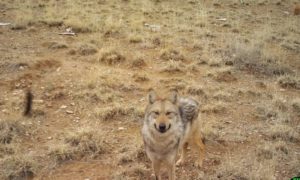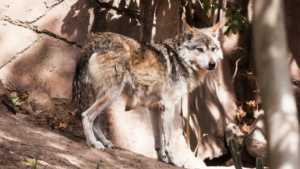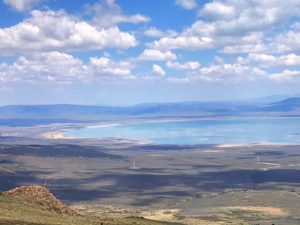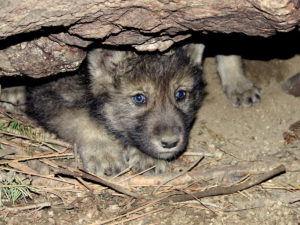For Immediate Release
March 20, 2024
Contacts:
Perry Wheeler, Earthjustice, pwheeler@earthjustice.org, 202-792-6211
Dana Johnson, Wilderness Watch, danajohnson@wildernesswatch.
Greg LeDonne, Western Watersheds Project, greg@westernwatersheds.org, 208-779-2079
KC York, Trap Free Montana, info@trapfreemt.org, 406-218-1170
Dallas Gudgell, International Wildlife Coexistence Network, Dallas@wildlifecoexistence.org 208-914-5194
Nick Gevock, Sierra Club, nick.gevock@sierraclub.org, 406-533-9432
Collette Adkins, Center for Biological Diversity, cadkins@biologicaldiversity.
Nicholas Arrivo, Humane Society of the United States, narrivo@humanesociety.org, 202-961-9446
Court Ruling Halts Wolf Trapping and Snaring in Idaho Grizzly Bear Habitat
Trapping and snaring will no longer be allowed during non-denning periods
Boise, ID – A summary judgment ruling in Idaho District Court yesterday will prevent the state of Idaho from authorizing wolf trapping and snaring in grizzly bear habitat during non-denning periods. The decision will stop trapping and snaring in Idaho’s Panhandle, Clearwater, Salmon, and Upper Snake regions between March 1 and November 30 on public and private lands to prevent the unlawful take of Endangered Species Act-protected grizzly bears.
The decision stated, “There is ample evidence in the record, including from Idaho’s own witnesses, that lawfully set wolf traps and snares are reasonably likely to take grizzly bears in Idaho.”
Thirteen conservation groups filed suit over the impacts of Idaho’s expanded wolf trapping and snaring to non-target grizzly bears in December 2021. Idaho’s challenged trapping and snaring rules, which have become more expansive in the past decade, allowed for year-round trapping and snaring on private land to help meet Idaho’s goal of killing up to 90% of the state’s gray wolf population. Grizzly bears have been captured in wolf traps and snares in Idaho, Wyoming, Montana, and Canada, and the court found that Idaho’s trapping rules violate the Endangered Species Act because grizzlies are likely to be captured in these deadly traps in the future.
“For the Nimiipuu people, protecting wolves and grizzly bears is akin to protecting a family member,” said Julian Matthews, coordinator for Nimiipuu Protecting the Environment. “We are thankful for this decision that will end the trapping and snaring of wolves in grizzly bear habitat during non-denning periods. It is critical that we maintain protections for wolves and grizzlies to ensure these species can continue to carry out their roles on this land.”
“Today’s decision is a victory for grizzly bears and all species impacted by Idaho’s indiscriminate wolf trapping and snaring,” said Ben Scrimshaw, senior associate attorney with Earthjustice’s Northern Rockies Office. “Even the state of Idaho has acknowledged the risk trapping and snaring poses to ESA-protected grizzly bears but has allowed it to continue during non-denning periods anyway. We are thankful that the court acknowledged this extreme risk and stepped in to prevent more harm.”
In July 2021, Idaho expanded the dangers of wolf-trapping to grizzly bears by establishing a permanent wolf-trapping season on private property across the state, eliminating limits on the number of wolves one person can kill, and providing financial incentives for wolf killing by raising wolf quotas and introducing state-sponsored, private-contractor killing of wolves. Idaho’s decision to continue wolf baiting with meat and scent ensures that grizzly bears will be attracted to wolf traps and snares at high rates.
“Today’s ruling provides a reprieve for grizzly bears in Idaho, not to mention wolves” said Dana Johnson, attorney and policy director for Wilderness Watch. “Grizzly bear communities in the state are already struggling—the last thing grizzlies need is to be collateral damage in Idaho’s war on wolves. This ruling makes their homes more secure and increases the odds of grizzly bears finding their way back to prior homelands, including the Selway-Bitterroot Wilderness and the broader Bitterroot Recovery Zone—an area critical for landscape-scale recovery of grizzlies.”
“Grizzly bears face too many barriers in recovering throughout Idaho ecosystems and it’s good to see this reckless trapping policy crossed off the list of concerns,” said Nick Gevock, field organizing strategist at Sierra Club. “Unfortunately we need to be prepared for more attacks and there is still much work to be done to ensure grizzlies have the room and safety they need to gain healthy populations throughout Idaho and beyond.”
“An iconic species such as the grizzly bear deserves to have better management than what has been parsed out over the years and this is a step in the right direction, ” said Clint Nagel, president of the Gallatin Wildlife Association. “The indiscriminate taking of wildlife is beneficial to no one and that is exactly why this was the right decision. It is time to treat our wildlife as the intrinsic value of our overall existence, for that is who they are.”
“This decision means that other threatened species like grizzlies won’t be caught up as collateral damage in Idaho’s persecution of wolves,” said Greg LeDonne, Idaho director for Western Watersheds Project. “The upheaval and ecological harm promoted by the state’s wolf management policies run counter to Idaho’s stated goal of reducing conflict between livestock and wildlife, and it’s good that today’s decision at least limits some of the effects of this anti-science approach.”
“We are pleased with the court’s decision as there truly is no such thing as wolf trapping. Trapping is indiscriminate, putting protected grizzly bears at risk, as well as anyone who comes across a trapped grizzly,” said KC York, president/founder of Trap Free Montana.
“Today’s ruling is good for grizzly bears in these key areas,” said Suzanne Asha Stone, director of the Idaho-based International Wildlife Coexistence Network. “Endangered Species Act protections have helped restore grizzly bears to their historic landscapes, where they once thrived for centuries. Today’s ruling recognizes the need for humans to actively coexist with these species and their natural habitat.”
“This is such a relief for me and for everyone who cares about grizzlies and wolves,” said Collette Adkins, carnivore conservation director at the Center for Biological Diversity. “The court recognized that trapping’s just not legal when it can end up causing agonizing pain and injury to endangered animals. This is a common-sense ruling that will make grizzly bears and other wildlife safer from traps that are inherently cruel.”
“This highlights that the State of Idaho cannot be trusted to manage grizzly bears if they were to be removed from the Endangered Species list,” said Jeff Juel, forest policy director with Friends of the Clearwater.
“This ruling gives Idaho’s grizzly bears a much-needed reprieve from cruel and indiscriminate traps in their habitat,” said Nicholas Arrivo, managing attorney for the Humane Society of the United States. “We cannot afford to let grizzlies become a casualty of Idaho’s intensifying war on wolves.”
“This wonderful victory for grizzly bears and for wolves shows that even Idaho is not above the law,” said Constance Poten, board chair of Footloose Montana. “It gives much needed respect and hope for essential native wildlife.”
Earthjustice is representing the Center for Biological Diversity, Footloose Montana, Friends of the Clearwater, Gallatin Wildlife Association, Global Indigenous Council, the Humane Society of the United States, International Wildlife Coexistence Network, Nimiipuu Protecting the Environment, Sierra Club, Trap Free Montana, Western Watersheds Project, Wilderness Watch, and Wolves of the Rockies in the lawsuit.
###






